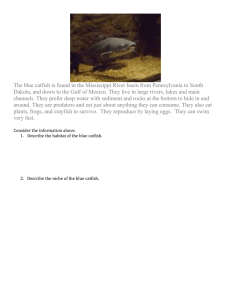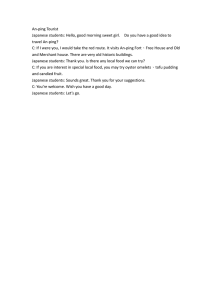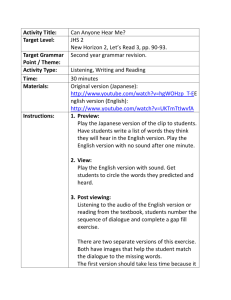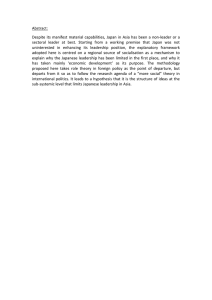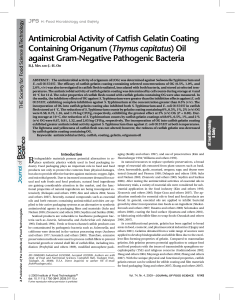A Comic Dialogue, 1855
advertisement
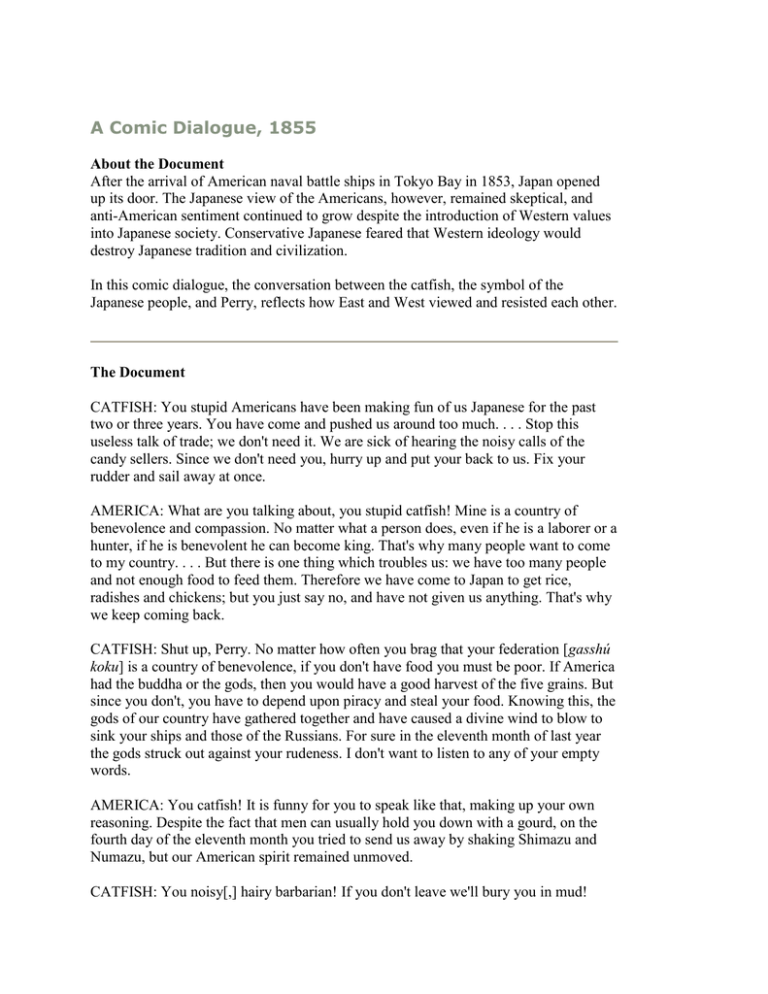
A Comic Dialogue, 1855 About the Document After the arrival of American naval battle ships in Tokyo Bay in 1853, Japan opened up its door. The Japanese view of the Americans, however, remained skeptical, and anti-American sentiment continued to grow despite the introduction of Western values into Japanese society. Conservative Japanese feared that Western ideology would destroy Japanese tradition and civilization. In this comic dialogue, the conversation between the catfish, the symbol of the Japanese people, and Perry, reflects how East and West viewed and resisted each other. The Document CATFISH: You stupid Americans have been making fun of us Japanese for the past two or three years. You have come and pushed us around too much. . . . Stop this useless talk of trade; we don't need it. We are sick of hearing the noisy calls of the candy sellers. Since we don't need you, hurry up and put your back to us. Fix your rudder and sail away at once. AMERICA: What are you talking about, you stupid catfish! Mine is a country of benevolence and compassion. No matter what a person does, even if he is a laborer or a hunter, if he is benevolent he can become king. That's why many people want to come to my country. . . . But there is one thing which troubles us: we have too many people and not enough food to feed them. Therefore we have come to Japan to get rice, radishes and chickens; but you just say no, and have not given us anything. That's why we keep coming back. CATFISH: Shut up, Perry. No matter how often you brag that your federation [gasshú koku] is a country of benevolence, if you don't have food you must be poor. If America had the buddha or the gods, then you would have a good harvest of the five grains. But since you don't, you have to depend upon piracy and steal your food. Knowing this, the gods of our country have gathered together and have caused a divine wind to blow to sink your ships and those of the Russians. For sure in the eleventh month of last year the gods struck out against your rudeness. I don't want to listen to any of your empty words. AMERICA: You catfish! It is funny for you to speak like that, making up your own reasoning. Despite the fact that men can usually hold you down with a gourd, on the fourth day of the eleventh month you tried to send us away by shaking Shimazu and Numazu, but our American spirit remained unmoved. CATFISH: You noisy[,] hairy barbarian! If you don't leave we'll bury you in mud! AMERICA: Go ahead and try; I'll fight back with gun and bayonet. PLASTERER: Both of you be quiet. If you are far away, listen carefully to my words; if you are close, look with your eyes and see the cracks in the warehouses. We are asked to patch up these cracks and holes, asked over and over again; we are asked to prop up the broken down walls; we are known for our fine work with the trowel. Everyone admires our work. We are thankful this time for the earthquake, but both of you try to resolve your differences without causing us any trouble. We don't want to see it; stop it! Source: Peter Duus, The Japanese Discovery of America: A Brief History with Documents (New York: Bedford Books, 1997), pp. 110-12. Analysis Questions 1. 2. 3. 4. Find one sentence in the dialogue to describe Japanese anti-American sentiment. How does the American brag about his culture? What is the general view of the Americans in the dialogue? What reasons does the American give for coming to Japan? Can these reasons be justified?
